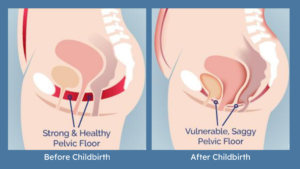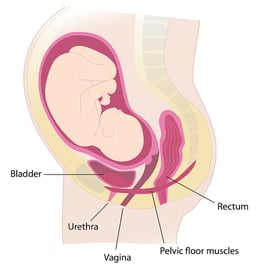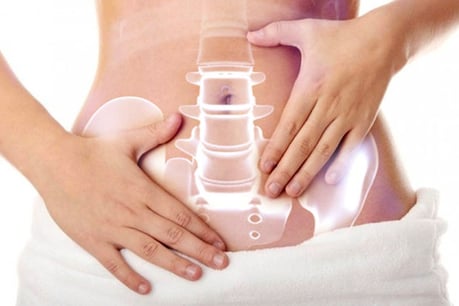The Unsung Hero During Pregnancy: The Pelvic Floor
The Foundation to our Core that Works Even Harder During Pregnancy
Dr. Cristina Zheng, PT, DPT, PCES
10/2/20233 min read




Pregnancy is a time of profound change, both physically and emotionally. As your body embarks on the incredible journey of creating new life, there's one unsung hero that often goes unnoticed but plays a pivotal role in your well-being – the pelvic floor. The pelvic floor, a group of muscles situated at the base of your pelvis, is like the foundation of a house, providing essential support for the entire structure. During pregnancy, these muscles become even more critical, serving as a linchpin for your comfort, health, and the successful journey of childbirth.
1. Foundation of Support


Imagine your pelvic floor as the foundation of a building. It bears the weight of the structure above, ensuring stability and integrity. Similarly, during pregnancy, your pelvic floor provides essential support for your growing uterus and the developing baby. A strong and functional pelvic floor is vital for maintaining proper posture, reducing back pain, and preventing discomfort.
Pregnancy brings significant changes to your body, and these changes place added stress on the pelvic floor. Hormonal shifts and the expanding uterus can weaken these muscles, potentially leading to issues like incontinence (leaking), pelvic pain, and pelvic organ prolapse. Understanding the importance of maintaining pelvic floor health can help you prevent or manage these common pregnancy-related concerns.
2. Pregnancy-Related Changes
3. Preparation for Labor
Your pelvic floor also plays a crucial role in labor and delivery. Learning how to engage and relax these muscles effectively can aid in the birthing process. Properly conditioned pelvic floor muscles can contribute to more efficient contractions and a smoother delivery, potentially reducing the risk of complications.


4. Postpartum Recovery


The journey doesn't end with childbirth; in fact, it's just the beginning. A strong and resilient pelvic floor is essential for postpartum recovery. These muscles support the healing process, reduce the risk of perineal tears, pelvic organ prolapse, diastasis recti, etc., and can enhance the speed and ease of recovery.
5. Preventative Care


Lastly, caring for your pelvic floor during pregnancy is a form of preventive healthcare. By addressing any issues or concerns proactively, you can reduce the risk of long-term complications, such as incontinence and pelvic organ prolapse, which can affect your quality of life even after pregnancy. Working with a pelvic floor physical therapist offers a multitude of benefits including decreasing pregnancy discomforts, optimizing your childbirth experience, and minimizing complications and risks.
In conclusion, the pelvic floor is not just a silent bystander during pregnancy; it's a crucial ally in your journey to motherhood. Understanding its importance and taking steps to maintain its health can contribute to a more comfortable pregnancy, a smoother childbirth experience, and a healthier postpartum recovery. It's time to give this unsung hero the recognition it deserves as an integral part of your pregnancy wellness plan.
Get in touch for your free 20-min consultation
Your pregnancy journey is a remarkable and transformative time in your life. To ensure your well-being, comfort, and a smooth transition into motherhood, it's essential to prioritize the health of your pelvic floor. Take the proactive step today to invest in your pelvic health by scheduling a free consultation with a pelvic floor physical therapist. Whether you're seeking to alleviate discomfort, prepare for childbirth, or safeguard your postpartum recovery, their expertise can make a significant difference. Don't wait; your pelvic health matters. Reach out to a pelvic floor physical therapist today and embark on your path to a stronger, more confident pregnancy journey.
Connect with Dr. Cristina! You will be contacted within one business day to answer any questions.
Contact
P: 858-800-2686
F: 858-221-6981
info@ptholistichealing.com
4849 Ronson Ct, Suite 103
San Diego, CA 92111


Privacy Policy
